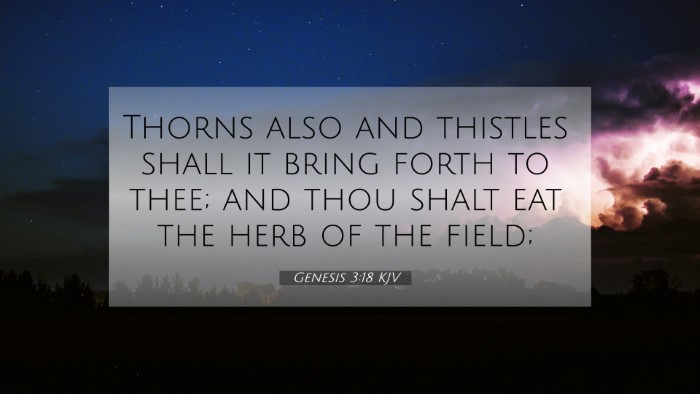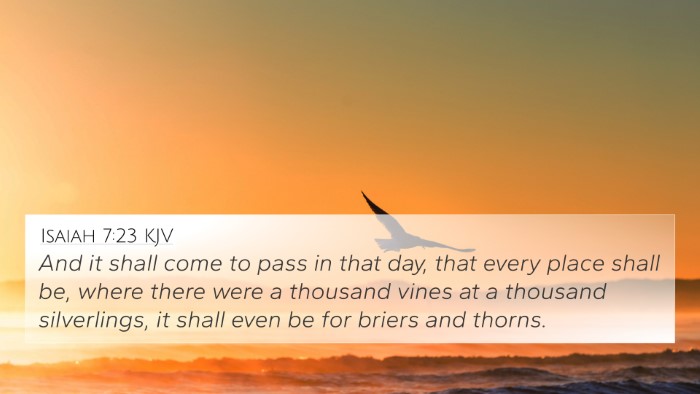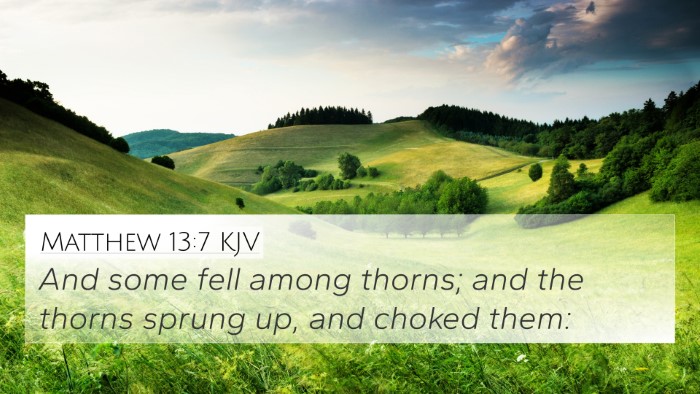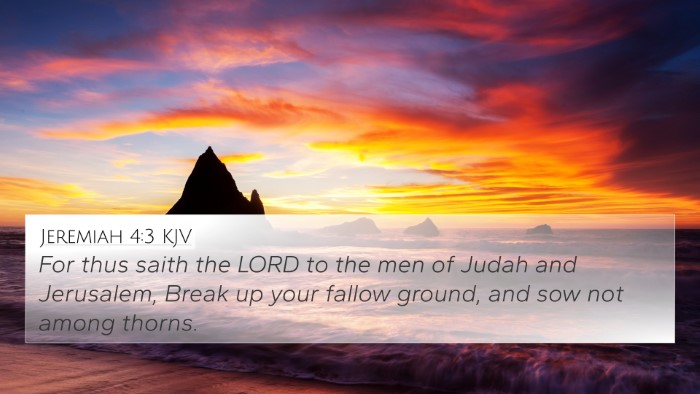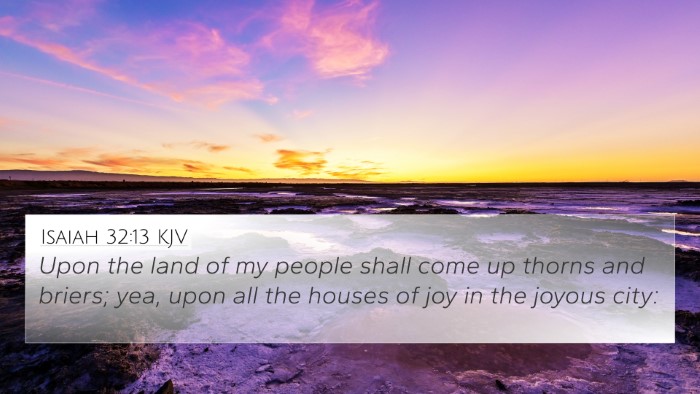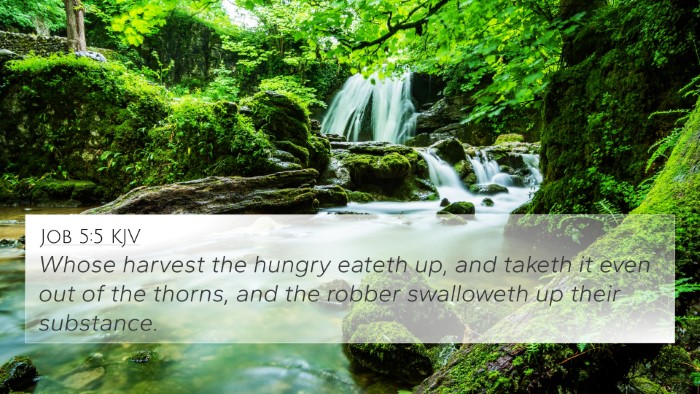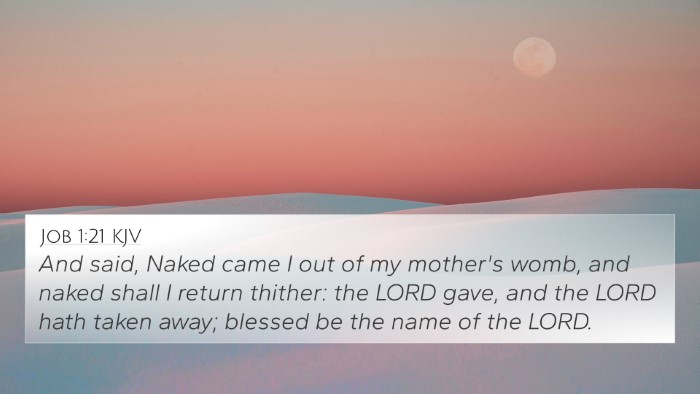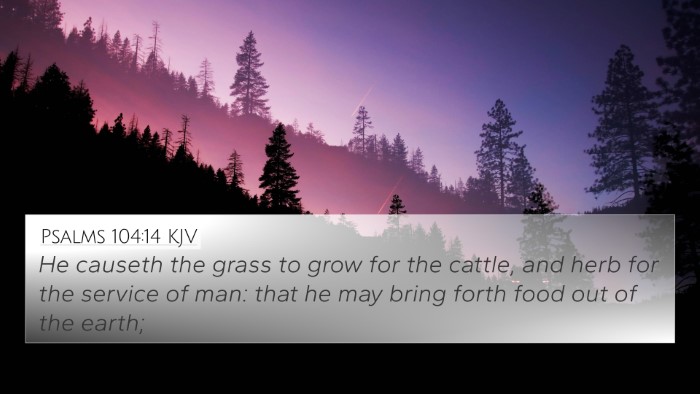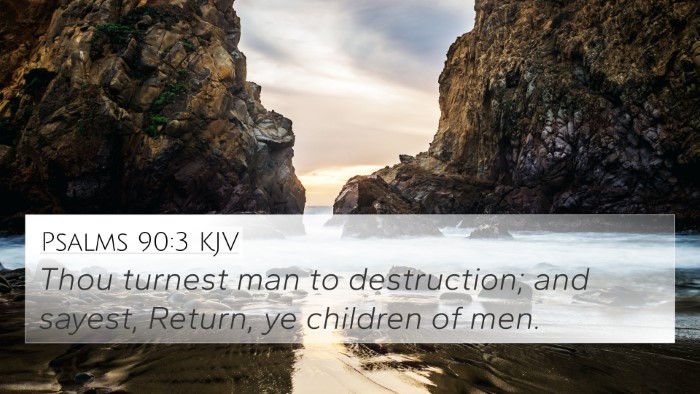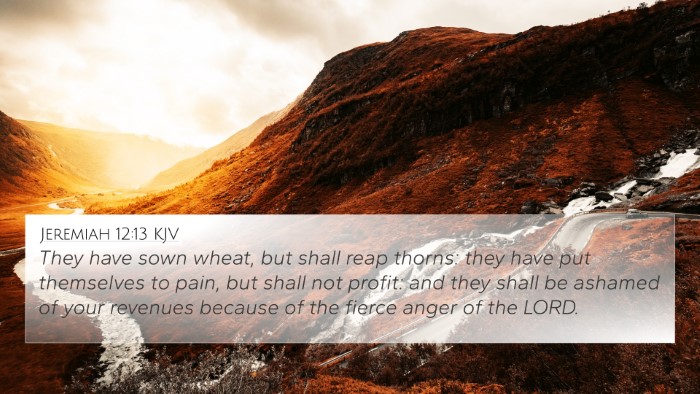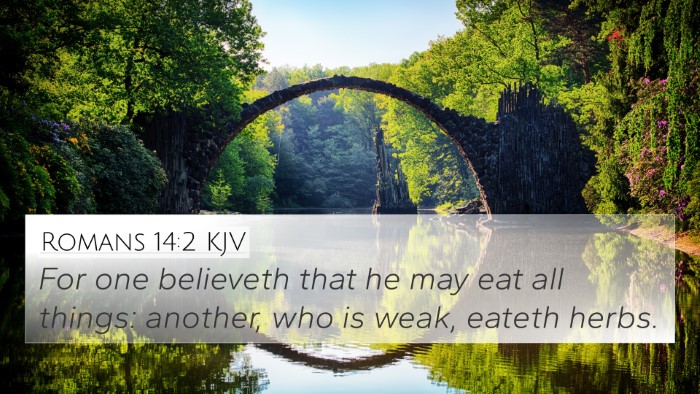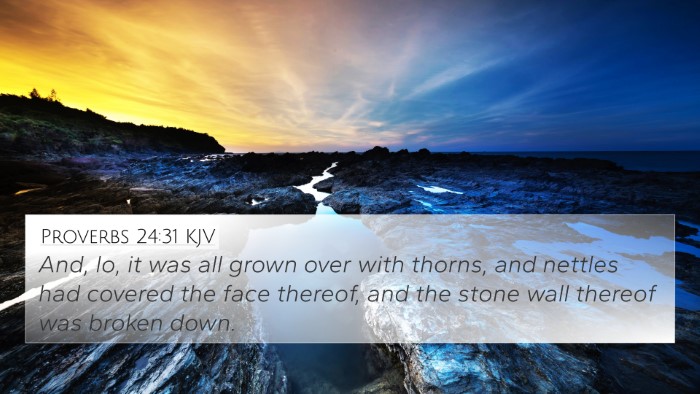Understanding Genesis 3:18
Genesis 3:18 states, "Thorns also and thistles shall it bring forth to thee; and thou shalt eat the herb of the field."
This verse establishes the consequences of Adam and Eve's disobedience to God in the Garden of Eden, emphasizing the altered relationship between humanity and the earth due to sin. Let's explore its meanings with insights from public domain commentaries.
Combined Insights from Commentaries
Matthew Henry: Henry interprets this verse as a depiction of the curse upon the ground as a result of man's sin. The "thorns and thistles" symbolize the difficulties and hardships humans would face while tilling the soil. This indicates that while work is a blessing, sin has made it a struggle.
Albert Barnes: Barnes emphasizes that the phrase "thorns also and thistles" serves as a metaphor for the trials of life. The reference to "the herb of the field" indicates a shift from divine provision in the Garden to a strenuous struggle for sustenance outside it. The concept of toil is stressed, highlighting a new order where nature resists human effort.
Adam Clarke: Clarke points out that this verse not only signifies physical labor but also outlines spiritual implications. The thorns symbolize the sorrows and pains that enter human existence through sin, indicating a life of hardship and toil that stands in contrast to the original design of ease and abundance in Eden.
Related Bible Verses
- Genesis 3:17 - Discusses the curse upon the ground.
- Genesis 3:19 - Indicates the mortality of man due to sin.
- Romans 8:20-22 - References creation being subjected to vanity and groaning due to sin.
- Galatians 6:7-8 - "For whatsoever a man soweth, that shall he also reap," which ties back to the laborious nature introduced in Genesis.
- Ecclesiastes 2:22-23 - Reflects on the toil and grief of labor in life.
- Matthew 7:16 - "Ye shall know them by their fruits," suggesting the outcome of one's efforts.
- Luke 8:14 - Challenges of growing faith amidst thorns and distractions.
Thematic Connections Between Bible Verses
This verse can further connect to the broader themes of the Bible concerning sin, labor, and the consequences of human action. The juxtaposition between divine order and disorder can be examined in cross-referencing various texts:
Cross-referencing Biblical Texts
Cross-referencing Genesis 3:18 enables an in-depth understanding of the scripture's implications. Here are key themes:
- The Consequence of Disobedience: Genesis 3:23-24 creates a narrative of separation from God due to sin.
- Labor and Struggle: Exodus 1:14 depicts the labor of the Israelites, illustrating a historical view of toil resulting from oppression.
- Hope Amidst Labor: Revelation 22:3 envisions a future without pain, contrasting the toil highlighted in Genesis.
SEO Content for Bible Study
When searching for Bible verse cross-references, Genesis 3:18 provides a rich example of how to link verses concerning human experience and sin. Understanding connections between Bible verses can enhance insight into the struggles presented within the scriptures. For example, how to use Bible cross-references to connect themes of hardship can lead to a deeper exploration of related verses, aiding in comprehensive Bible studies.
Tools for Bible Cross-Referencing
Utilize a Bible concordance or a Bible cross-reference guide to explore these connections further. Cross-referencing Bible study methods can enrich your reading experience, facilitating a better understanding of the thematic links between verses, especially connecting the narrative of Genesis to the lessons of Christ and the Apostle teachings.
Conclusion
In conclusion, Genesis 3:18 serves as a pivotal moment in scripture, grounding our understanding of the struggles with sin, labor, and the need for redemption. By examining related verses and cross-referencing before and after Genesis, one can embark on a comprehensive journey through the Bible’s teachings.


